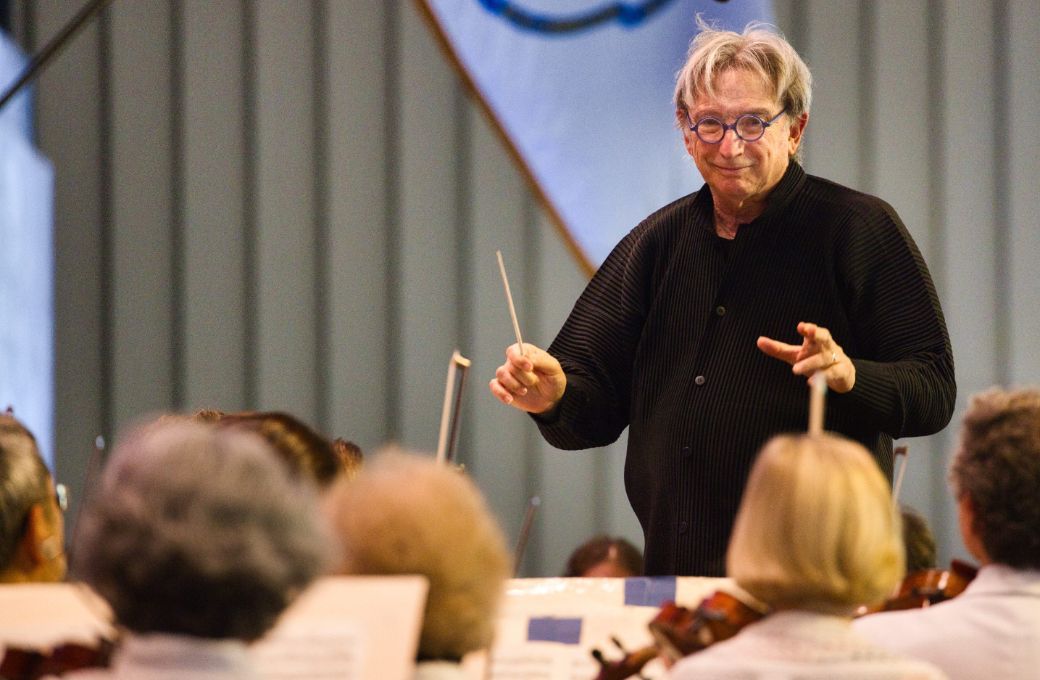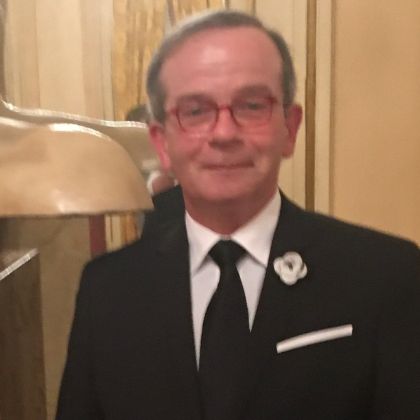Twenty-five years ago the Boston Symphony Orchestra began the tradition of closing the Tanglewood season with a performance of Beethoven’s Ninth. Two years of Covid broke that string. So Saturday’s performance was a welcome return not only for Michael Tilson Thomas himself but Beethoven as well. In a recent interview with The Boston Globe, Tilson Thomas remarked about a change in his focus, “I’ve just found my attention is drawn primarily to quiet, lyrical, sensitive moments in music,” and referenced Mozart, Schubert and Debussy, all of whom were part of the playlist he put together for his five-hour long brain surgery.

Lyric, quiet and sensitive aptly describes his approach to the Ninth last Sunday. Broad flexible tempi, attention to detail and nuance characterized the first three movements. Tilson Thomas’ loving caress of the third movement in particular left the impression that he didn’t want it to end. The quiet lyricism of all that preceded it lent an unaccustomed punch to the eruption of the fourth movement and its cascade of emotions and optimism. Tilson Thomas infused this movement with an exuberance and spontaneity which buoyed the four excellent soloists and formidable chorus, permeating the Shed as well. The prestissimo close drove Schiller’s message home to a Dionysian catharsis.
Charles Ives’ Psalm 90 didn’t reach its definitive form until 30 years after its initial composition in 1894. It is, in many ways, a summation in miniature of his originality with its use of tonal clusters, dissonance and overlapping melody. An organ and chimes open and close the psalm with the organ underpinning the chorus throughout with a C pedal. The lines constantly shift amongst the four sections of the chorus and in unusual combinations. Twice the chorus briefly hands off a line to a soloist, in this case the soprano and tenor from the Ninth quartet, Jacquelyn Stucker and Ben Bliss. Under James Burton’s sensitive direction the tension between the finite and infinite ultimately resolved into peaceful acceptance and provided the perfect lead-in for Tilson Thomas’ more introspective treatment of the Ninth.
In his commencement address at Juilliard last May, Tilson Thomas noted, “For me, the most profound question is what happens after the performance… What do people take away with them? What did we, as artists, do to make the souls of our audience richer, fuller, more compassionate?” This Sunday afternoon those “whats” were clearly answered by Tilson Thomas’ mere presence and the words of Psalm 90: “So teach us to number our days, that we may apply our hearts unto wisdom.”


